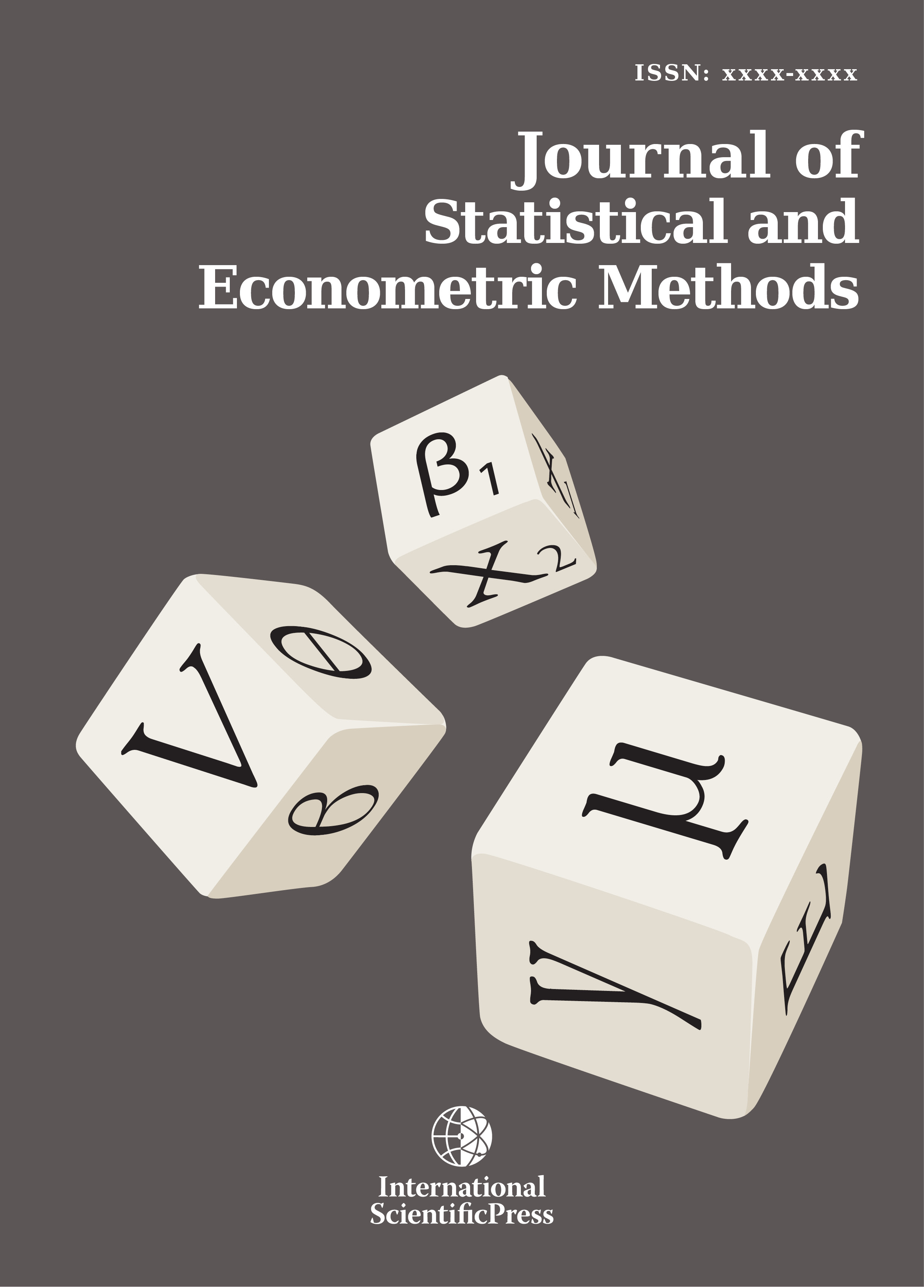Journal of Statistical and Econometric Methods
A Study of Budget Deficit Impact on Household Consumption in Morocco : A Copulas Approach
-
 [ Download ]
[ Download ]
- Times downloaded: 11342
Abstract
In this paper, we examine the validity of one of the most controversial issues in the economic research called the Ricardian equivalence hypothesis. It stipulates that there is no effect of budget deficit (BD) on household consumption (HC) [3]. Our approach is based on a Copulas model in the objective to select the best dependence structure between the two variables BD and HC in Moroccan economy during the 1980-2011 period where other econometric methods, like the vector autoregressive analysis model, do not give any answer. Especially, we use the Farlie-Gumbel-Morgenstern (FGM) family of copulas and we show that there is a significant non-linear cause-effect relationship between the BD and HC variables. We determine various conditional probabilities of the household consumption once the budget deficit is fixed. We found that a conditional distribution of the household consumption varies significantly for each fixed level of the budget deficit, and so an expansionist fiscal policy can improve the household consumption unlike to the restrictive one. This result permits us to reject the Ricardian equivalence hypothesis for the Moroccan economy.
